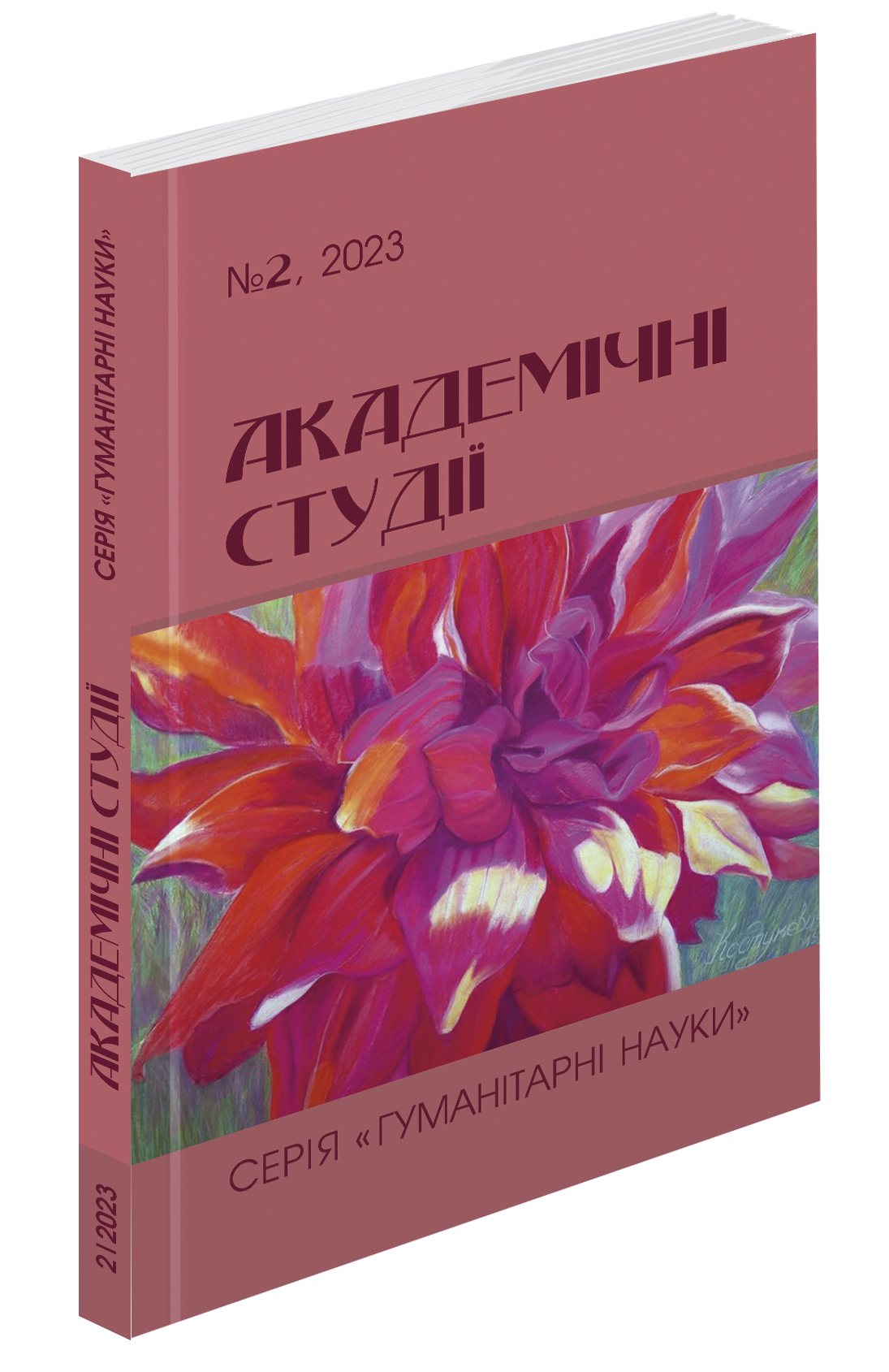Abstract
Intentionally situational nature of the discursive space of the text is always a priority object of research of such integrative disciplines as pragmastylistics, linguocultural studies, discursive linguistics, sociolinguistics, and contextual linguistics in particular. The referred article is aimed at solving the problem of the category of contextual synonymy on the material of the newspaper micro-context. It is considered a priority to study a special speech phenomenon that requires a detailed study of a lexical-synonymous unit in the process of contextualization. Synonymy as a categorical and semantic phenomenon in language can be considered only within the level of context, since the adequacy of the meaningful content of words and expressions is determined within the framework of the entire statement. Indirect meaning in language is inextricably linked to the contextual conditions of its use, namely the context. The boundaries of associative relationships, on which the transfer of meaning is based (regardless of the basis of transfer), their understanding and the accuracy of the author’s transfer, depends on the structure of the context, on the one hand, and on the other hand, as a mechanism that allows choosing the necessary lexical items within certain limits units for creating imagery. It has been revealed that the metaphor, due to its capabilities to name phenomena that are located at a distance and connected by some associative ties, occupies a prominent place in newspaper texts, where it serves as one of the key links in the development of the polysemanticism of the word, and the polyphony of the newspaper text in particular. The article characterizes the concepts of “context”, “contextuality”, “newspaper micro-context” and “illocutively marked newspaper microcontext”. It is noted that the category of contextual synonymy on the material of modern newspaper discourse functions on the verbal-semantic, formal and motivational levels. The persuasive potential of the category of contextual synonymy on the material of British periodicals is highlighted. The typology of contexts in discourse analysis is considered.
References
Ковальчук Л. Контекст та контекстуальність у сучасному англомовному художньому дискурсі: дис. … канд. філол. наук: 10.02.04.Луцьк – Запоріжжя. 2017. 231 с.
Кравченко Н. Ситуативно-подієвий аспект розуміння дискурсу. URL: https://scholar.google.es/citations?view_op=view_citation&hl=ru&user=jtu4L4oAAAAJ&cstart=20&pagesize=80&citation_for_view=jtu4L4oAAAAJ:JV2RwH3_ST0C (дата звернення: 25. 07.2023).
Селіванова О. Сучасна лінгвістика : термінологічна енциклопедія. Полтава : Довкілля-К, 2006. 716 с.
Charles, W. G. and Miller, G. A. 1989. Contexts of antonymous adjectives. Applied Psycholinguistics, 10: 357–375.
Cooper D. Е. Presupposition. The Hague, Mouton, 1974, 130 p.
Dijk T. A. van. Discourse and Context. A Sociocognitive Approach – New York: Cambridge University Press, 2008. 267 p.
Duranti A. Rethinking Context: Language as an Interactive Phenomenon. Cambridge University Press. 1995. 363 p.
Firth J. R. Papers in Linguistics 1934-1958. London. Oxford University Press, 233 p.
Fleischer W. Konnotation und Ideologiegebundenheit in ihrem Verhaltnis zu Sprachsystem und Text. – Wissenschaftliche Zeitschrift (Leipzig), 1978, N 5, S. 543.
George A. Miller & Walter G. Charles (1991) Contextual correlates of semantic similarity, Language and Cognitive Processes, 6:1, 1-28, DOI: 10.1080/01690969108406936
Gumperz J. J. Contextualization and Rethinking Context: Language as an Interactive Phenomenon. Cambridge : Cambridge University Press, 1992. P. 229–252.
Hall E. The Hidden Dimension. Anchor, 1990. 240 p.
Harris Z.S. Discourse Analysis Language.1952. Vol. 28. P.1-30
Verschueren J. Understanding Pragmatics. London. New York: Oxford University Press, 1999. 295 p.
Rodríguez, María. (2006). Tracing context in the discourse of the media: features of language-in-use in the British press. Revista Alicantina de Estudios Ingleses. 10.14198/raei.2006.19.09. URL: file:///C:/Users/Asus/Downloads/dcart%20(2).pdf

